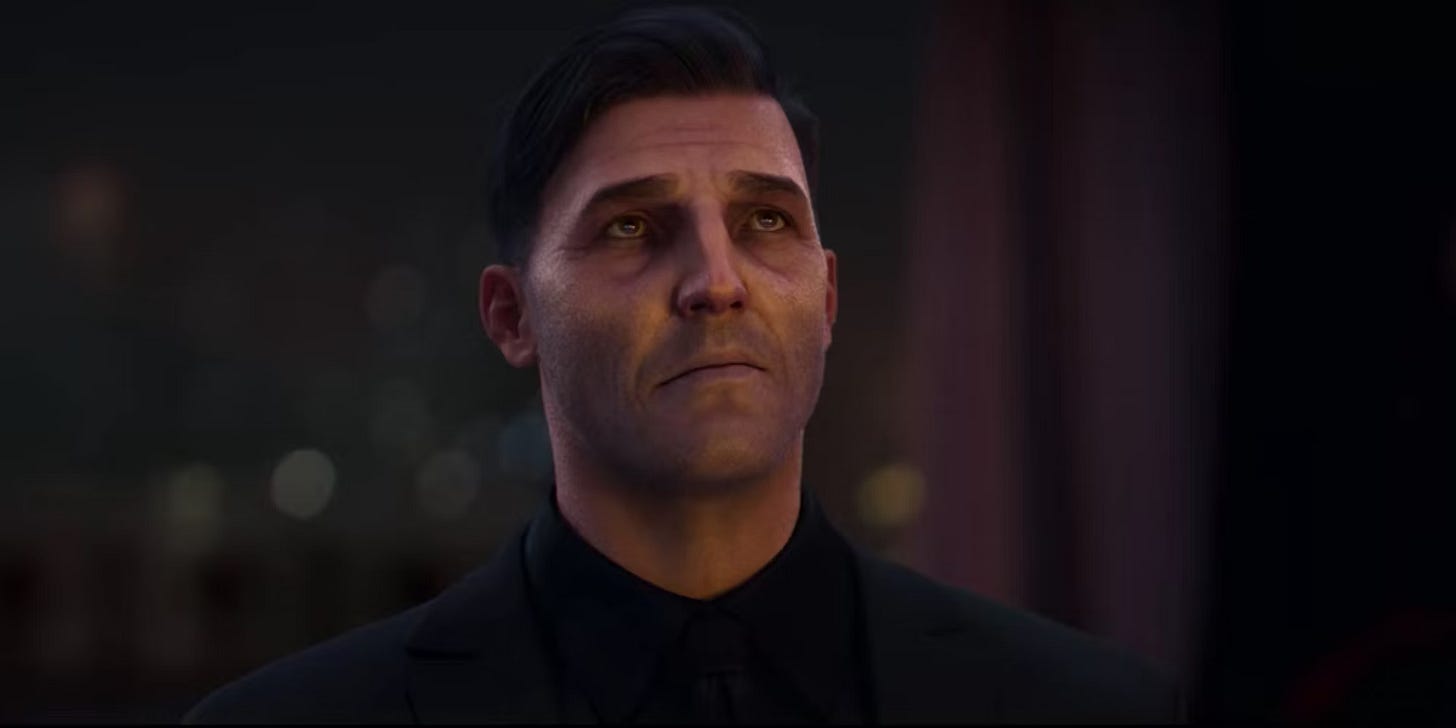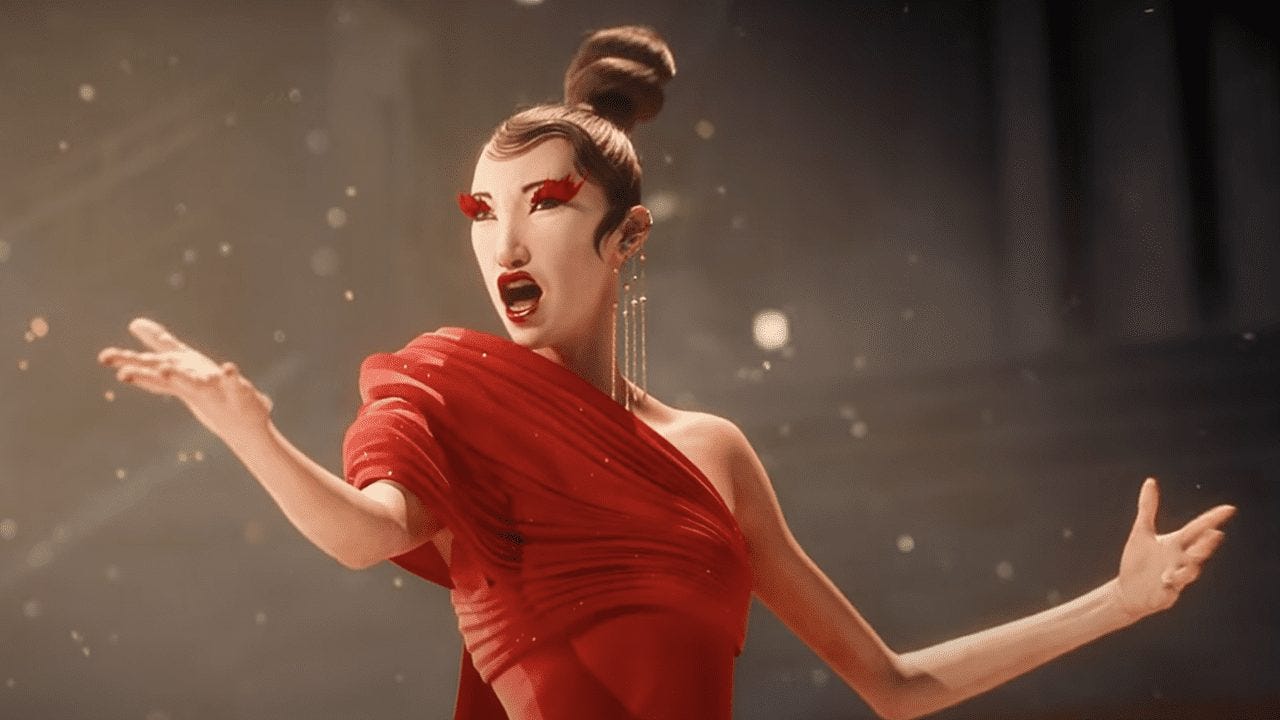Self-Love, Death and Robots
A Netflix story on new life and the limits of loving only yourself
Good morning friends and readers. This Is The Way. Today I’m really pleased to share a piece by Harry Angell, a Founding Member of This Is The Way and poetic writer on faith, classicism, and culture. He shares a synopsis and reflection on an episode of Love, Death and Robots on Netflix. I was really moved by the meaning Harry found in this show.
Before you dig into his piece, we have a new video up on our YouTube channel that sums up four life lessons I learned on my recent family trip to Iceland. We’d love if you’d watch and leave a comment about the takeaways from the video.
Love, Death, Robots, and Self-Love
Netflix’s science fiction series, Love, Death, and Robots, isn’t what you’d call pious-family entertainment. The material is often adolescent, gratuitously violent, and sexual. However, for you adults, there are a few gems including the episode titled, Pop Squad.
The Pro-life message of “Pop Squad” is real. It’s neither subtle nor feckless. Even amidst gruesome violence, Pop Squad is beautiful.
The short adheres to a short story by science fiction writer, Paolo Bacigalupi, and supplies us with that most essential of human needs: redemption.
Set in Blade Runner-esque New York, Pop Squad sets you in a place where the best place to live is above the clouds in giant skyscrapers. We surmise it is a warmed earth, steaming and stinking near the ground. The streets below are largely abandoned to the poorest people, criminals, the encroaching wildlife, and vegetation.
The lower levels are also where the mothers try to hide. Mothering and fathering are outlawed in this world, and their offspring are summarily murdered by the state. Children scream, cry, and laugh and that is how many families are caught — betrayed by their own nature.
Because they must live incognito, these illegal parents are poor and often live in squalor. The cops (AKA the Pop Squad) repeat to themselves some old tropes:
How can they live this way?
Children shouldn’t have to suffer like this
Don’t they know this is against the law?
Children must be murdered because humanity has found a therapy to remain young, essentially immortal. If humanity is immortal, the current occupants of the planet need there to be no new occupants.
The episode’s cop character, Briggs, says to his girlfriend, “We can’t keep inviting people to the party if no one ever leaves.”
Population squads (Pop) ensure there are no new party guests. The rejuvenation therapy people receive here is also spiked with birth control compounds. If you want to live forever, you must also be barren. To stop treatment means you will age and die, but you can make babies.
Briggs is over 100 years old and has killed hundreds of children. He lives in a society bent toward pointless pleasures and the refinement of beauties beyond their creators’ intent; ever sharpening the point of a crayon they could never create themselves. Perfection, without creation.
Briggs’ many traumas catch up with him one evening at a concert, one his musician girlfriend has spent 20 years perfecting. She wails a vacuous and wordless siren’s song, one that can lure only the most lovesick and ingratiating sailors. But sailors who can never die.
What is art without mortality?
But Briggs cannot take his mind off the small children he recently “popped” when he notices the blood spatter still sprinkled on his hands.
He gathers himself enough to flatter his girlfriend by telling her, “If we were not going to live forever, I would marry you.”
She replies, “If we weren’t going to live forever, I would let you get me pregnant.”
What is love without mortality?
Briggs agrees to take her to regular 18-month rejuvenation treatment. There she enters an ecstasy of youth and libido. On the way home, she wants to make love. Briggs refuses her. He can’t shake the memories of dead babies and the irony of her sexual advance are too much to bear.
To live forever means to be forever turned-on, but to no end. The procreative act between two will never make three.
Angry and conflicted, he follows a clue where he discovers a young woman who might be a mother. He wants to ask her why she does it.
Why would she choose exile, mortality, squalor, spit-up, screams, and poopy diapers over a clean and immortal life?
The layers of metaphor in this film are a rare treat.
Indeed, the labors of parenting are off-putting and incomprehensible to the childless, especially those who chose that life and were not inhibited from it. Why do we choose the burdens, all the expenses, the loss of time, our health, the stretch marks and quickly graying hair? Why do we give up the potential for boundless hedonistic pleasures?
The answers are many, and they’re primal, sublime, and inexplicable to parents and aspiring parents.
Briggs learns some of the answers from the young mother, who is not really young at all. But now she will truly grow old. What she says to him is convicting of our culture’s present narcissism…..
“I’m not so in love with myself that I want to live forever and ever”
Pop Squad resolves with Briggs looking up into the rain and the fecund greenery of the encroaching natural world, and in that moment he seems to know he’ll be delivered home to be made a father to something other than death.
Briggs’ redemption should give us all hope for our own. We may just be at the beginning of a world fully engrossed with the infantilization of its adults alongside the infanticide of its young. It might get much worse.
But then again, things may get better. Suns will always set, and you can’t stop them from rising once more.
Harry Angellwrites The Anastomosing Dendrite on Substack and is a Founding Member of This Is The Way.







